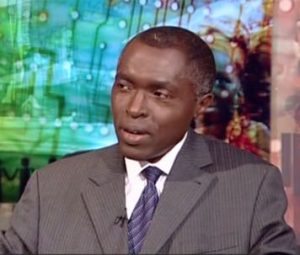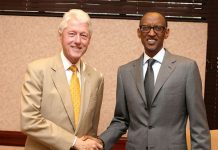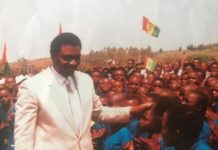When International Criminal Tribunal prosecutor Carla Del Ponte learned from a Canadian newspaper in 2000 that the Rwandan Patriotic Front and its leader Paul Kagame were prime suspects in the April 6, 1994, assassination of the presidents of Rwanda and Burundi, she reportedly said: “If it is the RPF that shot down the plane, the history of genocide must be rewritten”. Robin Philpot
On Saturday October 25th, 2014 there was a discussion between Rwandan listeners of the popular online radio Ijwi Rya Rubanda. The topic of the day was the controversial BBC TWO documentary Rwanda Untold Story which had been aired recently on the British channel. Someone raised the issue of timing.
On October 1st, 1990, Rwanda was invaded from Uganda by the Rwandan Patriotic Front [RPF]. The rebel movement consisted of former Tutsi refugees who had settled in that country. Their parents had fled their country in the 60s after the social revolution led by Hutus. That political change had ended 5 centuries of their slavery by Tutsis under the system of Ubuhake.
When RPF rebels attacked, they were heavily supported militarily and diplomatically by Uganda, US and UK. The objective was to take power in Rwanda then continue in the Democratic Republic of Congo [DRC]. This was part of reshaping at their advantage the entire region of the Great Lakes after the end of the Cold War. French and Belgians once ousted, they would be replaced by the Anglo-Saxons [US, UK and Canada] plus Israel.
What started 24 years ago has not been completed yet, but the overall observation is that it has cost millions of Rwandans and Congolese lives. The UN Mapping report, which meticulously lists all international crimes committed in the Congo from 1993 to 2003 was published on October 1st, 2010. The report clearly points at the Rwandan president Paul Kagame as one of the top responsible of score of crimes which during that period could be characterized as genocide if brought in front of a court.
It was on October 1st, 2014 that the film on Rwanda was initially presented on the British channel BBC TWO. One could wonder if the date of this broadcasting was chosen accidentally. Since its presentation it has raised many serious complaints, particularly from researchers, journalists and historians and other personalities linked in one way or another with the regime of Kagame. Several groups manipulated by the Rwandan regime inside the country have also joined the fray.
We remember that in the past, for example, when the UN Mapping report was published, and that Kagame menaced to return home his UN peacekeepers, the UN secretary general Ba-Kimoon, rushed to Kigali to plead with the Rwandan president not to do so, because that would’ve jeopardized the UN mandate. The report became irrelevant to accuse Kagame of anything because of the blackmail.
This time the blackmail tactic from Kagame does not seem to work. Kigali has suspended BBC license to broadcast in Rwanda in kinyarwanda. Surprisingly the British media group has instead decided to programme again the documentary for its British viewers. This World: Rwanda’s Untold Story will be on BBC Two (Wales) 12:20am Friday October 31st and BBC Two (Northern Ireland) 12:50am the same night.
Understandably, the Rwandan president is deeply upset against BBC, an institution which had kept him in high consideration in the eyes of the global audience. In his ongoing reactions over the saga, some people are suggesting that he should go even further, for example, by quitting the Commonwealth or prohibiting the use of English in the country. It won’t be a first, since he stopped a few years ago the teaching and use of French.
Whatever the motives of the British broadcaster by airing the untold story about Rwanda, and the seemingly emotionally rooted reactions of the Rwandan president, the re-writing of the Rwandan genocide appears to have started. The writing is on the wall as they say. Will it end with the West imposing another group of criminals to rule over Rwandans for its permanent interests and the latter accepting it passively? This remains the main question if they think they need to have a say in what happens to them.
































































